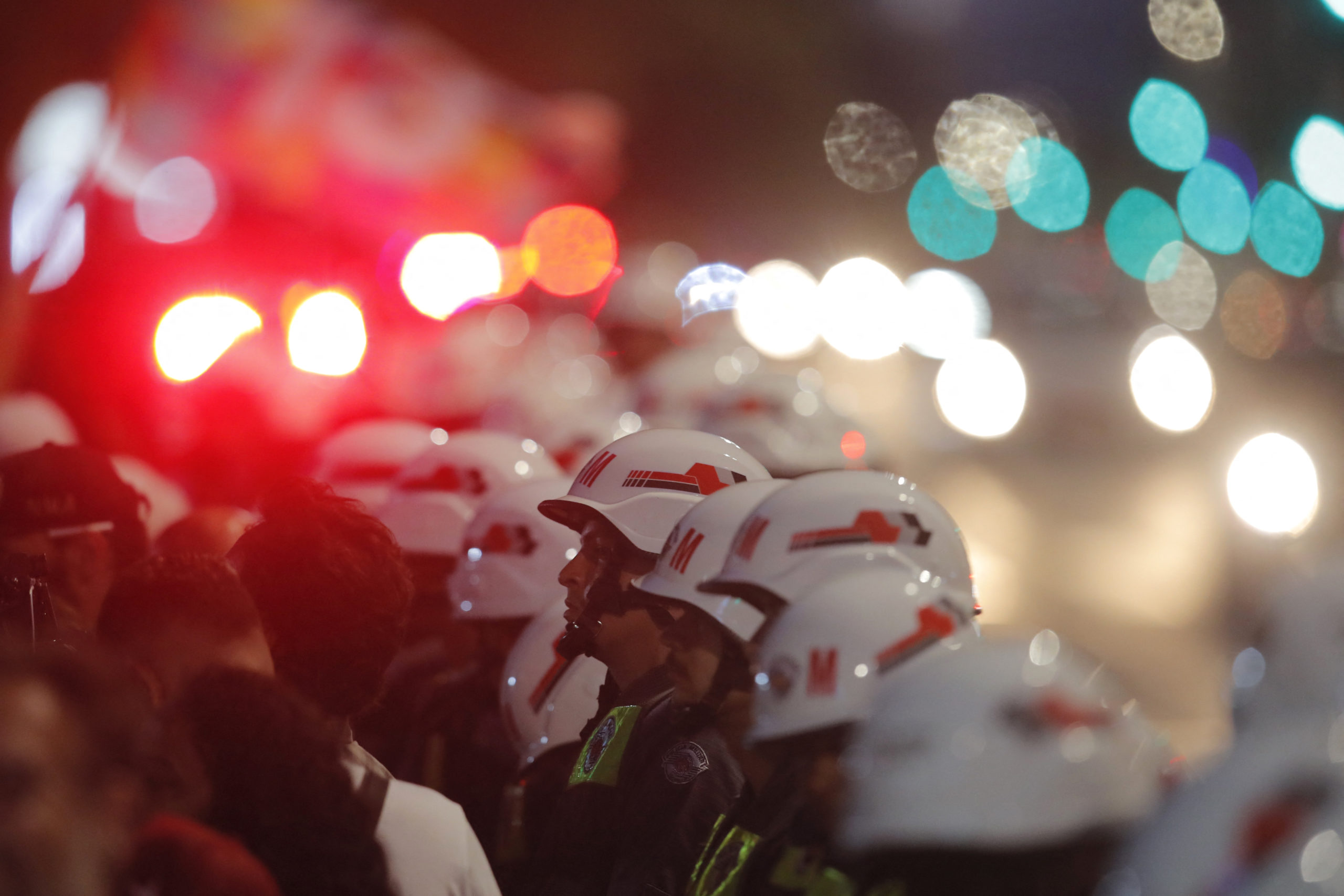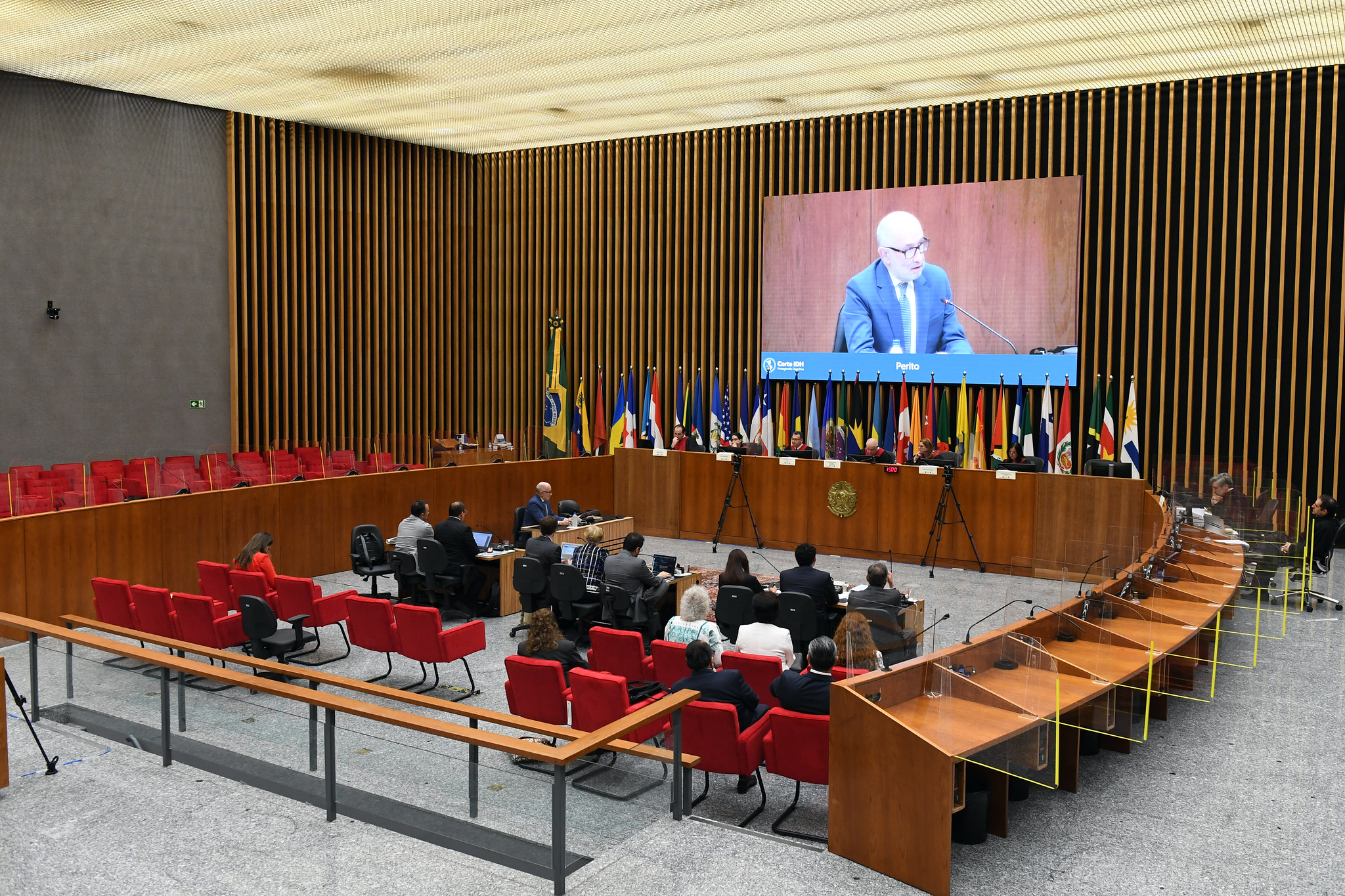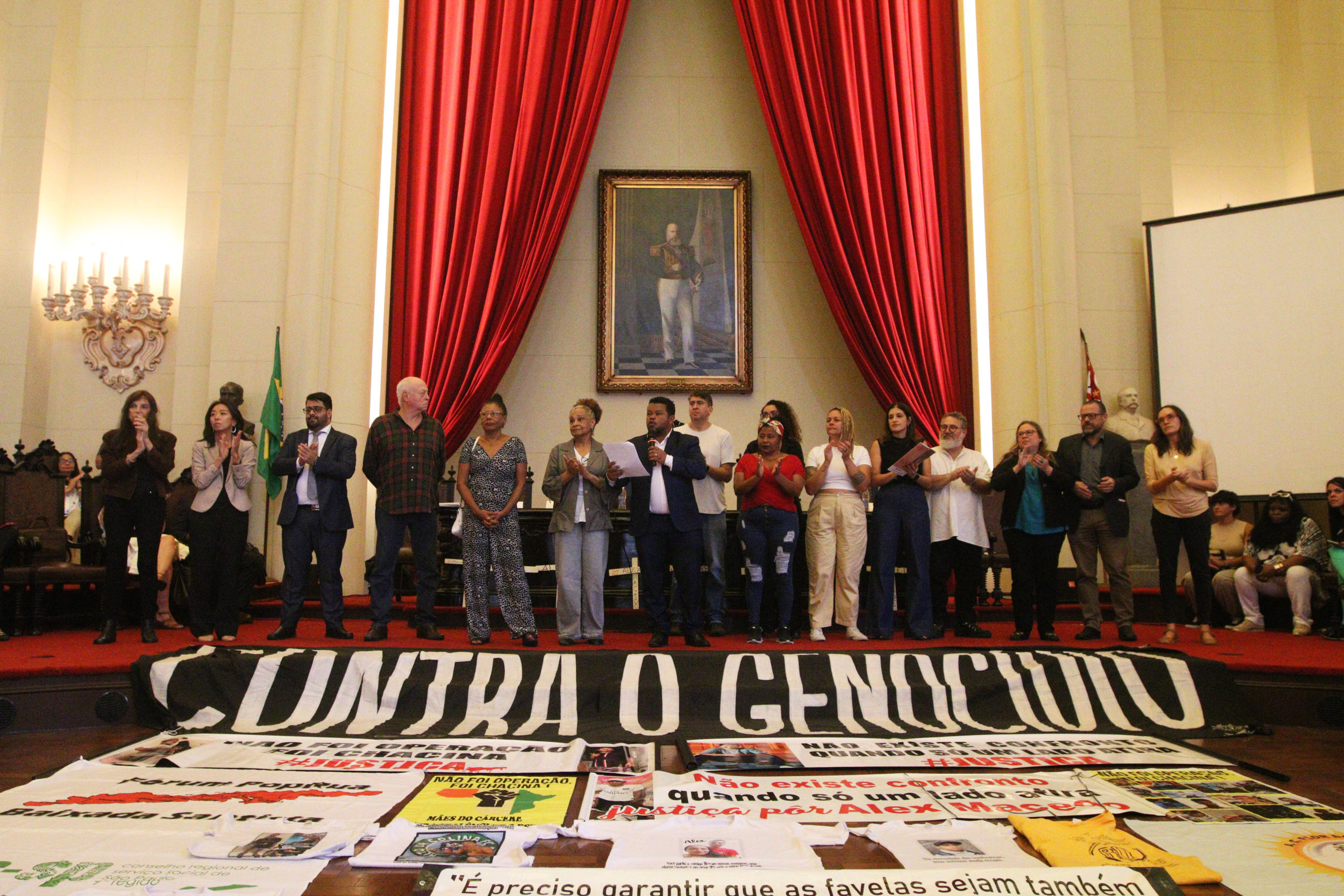Joint statement
Human rights violations of migrant persons on the Venezuela-Colombia border
The Bolivarian Republic of Venezuela decided to close its border in numerous municipalities of Táchira state and deport at least 1097 people of Colombian origin, among them 220 children and adolescents, according to the United Nations Office for the Coordination of Humanitarian Affairs.[1] These people were forced to make their way to the Colombian province of Norte de Santander, without anyone taking into account their family situation, or whether they were asylum seekers, or the principle of non-refoulement. During the deportations, these migrants were subjected to stigmatizing practices and an excessive use of force by the security forces. These collective deportations, the decision by Venezuela’s government to declare a state of emergency in a border zone, the border closure itself, and the way in which the area is being controlled are incompatible with international human rights law.
The United Nations High Commissioner for Refugees has said on innumerable occasions that border closures are contrary to the principle of international refugee protection since they hinder the entry and exit of persons who are victims of persecution in their countries and have a right to international protection.
At the same time, if security forces are charged with managing border zones, mechanisms for judicial protection must be established immediately to address any human rights abuses or violations that members of these forces could commit. This figures among the standards set by the Inter-American Court of Human Rights in Advisory Opinions 8 and 9 regarding states of emergency. In addition, the declaration of a state of emergency can never enable mass or collective deportations, which are prohibited by Article 22, subparagraph 8 of the American Convention on Human Rights (ACHR), by the International Covenant on Civil and Political Rights (ICCPR) and by the United Nations International Law Commission (ILC).
Furthermore, the United Nations Office of the High Commissioner for Human Rights adopted last year the Recommended Principles and Guidelines on Human Rights at International Borders. The principle of assistance and protection from harm establishes in paragraph 10 that “States shall protect … migrants at international borders without discrimination. Human rights obligations … must take precedence over law enforcement and migration management objectives.” Paragraph 13 declares that “States shall ensure that all migrants who have suffered human rights violations or abuses … have equal and effective access to justice, access to effective remedies, adequate, effective and prompt reparation for harm suffered, and access to relevant information concerning violations and reparation mechanisms.”
The way in which these deportations were carried out violates the guarantees set forth by international law for the protection of migrant persons’ rights. Deportation is the most extreme of measures and has an enormous personal and familial impact. For this reason, it must comply with specific procedures and be subject to strict oversight. As the bodies of the inter-American system for human rights protection have indicated, States have the obligation to analyze, justify and decide on an individual basis each of the deportations that they effectuate.
Action is needed on the part of regional and international protection mechanisms and intergovernmental forums, which should also incorporate in their agenda the human rights guarantees for those people who have been or are being deported by Venezuela’s government.
Borders cannot become places of tension or breeding grounds for xenophobia and violence. When governments take measures regarding these areas, they must start by recognizing the human rights of all persons affected. For this reason, we consider that officials must urgently review the measures that entail closing the border, set up the institutional or judicial mechanisms needed to oversee the decisions being adopted, and ensure the guarantees of due process, judicial protection and respect for the right to family life. The decisions that affect these areas must avoid creating tension between neighboring communities and avert violent intervention on the part of security forces.
The following organizations endorse this statement:
| Abogadas y Abogados para la Justicia y los Derechos Humanos – Mexico |
| Acción Solidaria en VIH/Sida |
| ACLU Regional Center for Border Rights |
| Asociación Pro Derechos Humanos (APRODEH) – Peru |
| Asociación de Residentes Senegaleses en Argentina |
| Ágora Espacio Civil – Paraguay |
| Centro de Formación y Acción Social y Agraria (CEFASA) – Dominican Republic |
| Centro por la Justicia y el Derecho Internacional (CEJIL) – Regional |
| Centro de Documentación en Derechos Humanos “Segundo Montes Mozo S.J.” (CSMM) |
| Centro de Estudios Legales y Sociales (CELS) – Argentina |
| CIVILIS Derechos Humanos |
| Clínica Jurídica para Migrantes y Refugiados de la Universidad Diego Portales – Chile |
| COFAVIC – Venezuela |
| Colectivo de Apoyo para Personas Migrantes A.C. (COAMI) – Mexico |
| Comisión Argentina para los Refugiados y Migrantes (CAREF) – Argentina |
| Conectas Direitos Humanos – Brazil |
| Dejusticia – Colombia |
| Derechos Humanos Integrales en Acción – Mexico |
| Due Process of Law Foundation (DPLF) |
| Fundación Comisión Católica Argentina de Migraciones (FCCAM) – Argentina |
| Fundar, Centro de Análisis e Investigación – Mexico |
| Grupo de Monitoreo Independiente de El Salvador (GMIES) |
| Grupo de Mujeres de San Cristóbal Las Casas – Mexico |
| Instituto Internacional de Derecho y Sociedad – IIDS – Peru
Laboratorio de Paz – Venezuela |
| Migrantes y Exiliados Colombianos por la Paz (MECoPa) – Argentina |
| Observatorio Ciudadano – Chile |
| Pastoral de Movilidad Humana Bolivia |
| Plataforma Interamericana de Derechos Humanos, Democracia y Desarrollo (PIDHDD Regional) |
| Programa de Defensa e Incidencia Binacional (PDIB) – Mexico |
| Programa Venezolano de Educación-Acción en Derechos Humanos (Provea) – Venezuela |
| Red Internacional de Migración y Desarrollo |
| Servicio Ecuménico para la Dignidad Humana (SEDHU) – Uruguay
Southern Border Communities Coalition – United States |
| Unidad de Protección a Defensoras y Defensores de Derechos Humanos (UDEFEGUA) – Guatemala |


